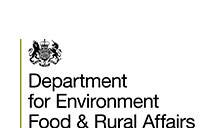The Global Plastic Challenge and Its Environmental Impact
The world is facing an increasingly urgent concern – the growing problem of plastic waste and its devastating impact on the environment. Plastic pollution poses significant threats to ecosystems, wildlife, and even human health. It is crucial to understand the magnitude of this issue and the pressing need for sustainable solutions.
Statistics and examples vividly demonstrate the scale of the problem. Globally, an astounding amount of plastic waste is produced each year, with a significant portion ending up in landfills, oceans, and other natural habitats. This waste takes centuries to degrade, causing long-lasting harm to the environment and endangering marine life.
The urgency to tackle the plastic challenge cannot be overstated. As individuals, communities, and governments, we must come together to find innovative ways to reduce plastic consumption and improve waste management practices. Failing to do so could result in irreparable damage to our fragile ecosystems and jeopardize the health of future generations.
Analyze current US policies and regulations related to plastic waste management
Existing Laws and Regulations
The United States has implemented several laws and regulations aimed at addressing plastic pollution and promoting sustainable waste management practices.
One key legislative proposal is the Plastic Pollution Reduction Act, which aims to tackle plastic waste by implementing measures such as extended producer responsibility, product-specific plastic waste reduction targets, and restrictions on single-use plastics.
Another important piece of legislation is the Break Free From Plastic Pollution Act, which seeks to shift the responsibility of managing plastic waste from municipalities to producers. It proposes measures such as setting recycling standards, establishing container deposit systems, and banning certain single-use plastic products.
Effectiveness and Implementation
While these laws signal positive steps towards reducing plastic pollution, their effectiveness and implementation vary.
For example, the Plastic Pollution Reduction Act has gained support from advocates and environmental organizations who believe it provides comprehensive solutions. However, challenges may arise in implementing extended producer responsibility programs and enforcing product-specific plastic waste reduction targets.
The Break Free From Plastic Pollution Act has also generated debate. While proponents argue that it holds producers accountable for their plastic waste, critics express concerns about the potential impact on the manufacturing industry and the need for effective recycling infrastructure to meet proposed recycling targets.
Role of Government Agencies
The enforcement of plastic waste management policies falls under the responsibility of government agencies, primarily the Environmental Protection Agency (EPA).
The EPA plays a crucial role in developing and enforcing regulations that address plastic pollution. It conducts research, educates the public, and collaborates with various stakeholders to promote sustainable waste management practices and ensure compliance with existing laws.
In recent years, the EPA has been working on initiatives such as the Trash Free Waters Program and the Plastics Recycling Dialogue to engage stakeholders, share best practices, and identify areas of improvement in plastic waste management.
Overall, while the US has made progress in enacting legislation to combat plastic waste, there is a continuous need for improved effectiveness, implementation, and enforcement of these policies to achieve comprehensive and sustainable plastic waste management.
Exploring Innovative Approaches and Initiatives Led by the US to Combat Plastic Pollution
Plastic pollution is a global challenge that requires innovative solutions to effectively reduce and manage plastic waste. In the United States, various projects and initiatives have emerged, driven by companies, organizations, and communities, which have successfully contributed to combating plastic pollution.
Sustainable Packaging Alternatives
One innovative approach in the US is the development of sustainable packaging alternatives. Companies have been investing in research and development to create packaging materials that are biodegradable, compostable, or made from renewable resources. For example, bioplastics derived from plant-based sources, such as corn or sugarcane, are gaining popularity as a sustainable alternative to traditional plastic packaging.
Furthermore, companies are exploring innovations like edible packaging, which offers a unique solution to reduce plastic waste. This type of packaging is made from edible materials such as seaweed or starch, eliminating the need for disposal and reducing environmental impact.
Extended Producer Responsibility (EPR) Programs
The implementation of Extended Producer Responsibility (EPR) programs is another significant initiative in the US to combat plastic pollution. Under an EPR system, producers take responsibility for the entire lifecycle of their products, including the proper disposal and recycling of their packaging after use.
Several states in the US have enacted legislation requiring companies to participate in EPR programs or pay fees to fund recycling initiatives. These programs encourage manufacturers to reduce plastic use, design more recyclable packaging, and invest in recycling infrastructure.
Promoting Recycling and Waste Reduction
Communities across the US have taken the lead in promoting recycling and waste reduction through grassroots initiatives. Local governments, in collaboration with organizations and individuals, have implemented comprehensive recycling programs that encourage citizens to separate and properly dispose of their waste.
Additionally, educational campaigns and public awareness programs have been crucial in informing individuals about the importance of recycling and waste reduction. These initiatives aim to change consumer behavior by encouraging them to choose recyclable products, reduce single-use plastic consumption, and participate actively in waste management efforts.
Public-Private Partnerships (PPPs)
The success of many innovative projects in combating plastic pollution relies heavily on public-private partnerships (PPPs). Governments, businesses, and non-profit organizations work together to develop and implement sustainable practices and technologies.
For instance, collaborations between companies and recycling facilities have resulted in the creation of advanced recycling technologies, such as chemical recycling, which converts plastic waste into valuable raw materials for manufacturing new products. These partnerships facilitate the scaling up of innovative approaches and make them more accessible to a broader audience.
Furthermore, PPPs have played a crucial role in supporting research and development for sustainable alternatives to plastic products. By combining resources, knowledge, and expertise, these partnerships accelerate the transition towards a circular economy and drive further innovation in plastic waste reduction.
Consumer Behavior and Awareness: Key Factors in Reducing Plastic Waste
Consumer behavior and awareness play a significant role in the consumption and generation of plastic waste. By understanding the impact of their choices and adopting more sustainable consumption habits, individuals can contribute to reducing plastic waste and protecting the environment.
Role of Consumer Choices and Behaviors
- Consumer choices, such as purchasing decisions and product preferences, directly impact the demand for plastic packaging and single-use plastics. By opting for products with minimal packaging or eco-friendly alternatives, consumers can reduce their plastic consumption.
- Behavioral patterns, such as proper waste disposal and recycling practices, also play a crucial role in preventing plastic waste from ending up in landfills or polluting natural ecosystems.
- Adopting reusable alternatives, such as reusable bags, water bottles, and coffee cups, can significantly reduce the reliance on single-use plastics.
Impact of Public Awareness Campaigns and Educational Programs
- Public awareness campaigns and educational programs are instrumental in informing individuals about the environmental consequences of plastic waste and promoting sustainable consumption habits.
- These initiatives raise awareness about the benefits of recycling, waste reduction, and the adoption of circular economy principles.
- Behavioral nudges, such as reminders to bring reusable bags or bottles, can effectively influence consumer choices and encourage more sustainable behaviors.
Success Stories of Communities and Individuals
- Communities and individuals worldwide have embraced eco-friendly practices and significantly reduced their reliance on single-use plastics.
- For instance, some communities have implemented plastic-free initiatives, banning the use of plastic bags or straws in local businesses.
- Residents have taken the initiative to organize beach clean-ups, raising awareness about plastic pollution and its detrimental effects on marine life.
- Several individuals have made conscious choices to switch to reusable alternatives and actively participate in recycling programs.
By highlighting these success stories, it becomes evident that individual efforts can contribute to a collective impact in reducing plastic waste.
The implementation of sustainable plastic waste management practices requires a collaborative approach involving governments, the private sector, civil society, and individuals. With the combined efforts of various stakeholders, we can create a significant and lasting impact in addressing the global plastic challenge.
As consumers, we have the power to make a difference. Through informed choices, sustainable behaviors, and active participation in recycling and waste reduction programs, we can be part of the solution in reducing plastic waste and preserving our environment for future generations.
The Role of International Cooperation in Addressing the Global Plastic Challenge
The global plastic challenge requires a collaborative and coordinated effort from nations around the world. International agreements and organizations play a crucial role in facilitating cooperation and sharing best practices, innovations, and research findings in plastic waste management and reduction.
One such international agreement is the Basel Convention, which aims to minimize the impacts of hazardous and other wastes on human health and the environment. Recognizing the growing threat of plastic waste, the Basel Convention recently amended its regulations to include various types of plastic waste, strengthening the global commitment to addressing this issue.
The United Nations Environment Programme (UNEP) is another key organization in the global fight against plastic pollution. UNEP works with governments, businesses, and civil society to advocate for sustainable waste management practices, promote innovation in plastic recycling and alternative materials, and support policy developments at the international level.
Cooperation between nations is vital for exchanging knowledge and experiences in effectively managing plastic waste. By sharing successful initiatives, technologies, and research findings, countries can build on each other’s achievements and develop more efficient waste management systems.
Key Aspects of International Cooperation in Plastic Waste Management
- Sharing Best Practices: Nations can learn from each other’s successful approaches to plastic waste reduction, recycling, and sustainable packaging. This exchange of knowledge helps accelerate progress and drives innovation in waste management practices.
- Technological Innovations: Collaborative efforts facilitate the sharing of technological advancements in plastic recycling, waste-to-energy conversion, and other innovative solutions. By leveraging these technologies, countries can effectively manage their plastic waste and minimize its negative environmental impacts.
- Research and Development: International cooperation enables the pooling of resources and expertise to support research and development in sustainable alternatives to plastic, such as biodegradable materials and bio-based polymers. This fosters innovation and the creation of more environmentally friendly products.
Successful International Collaborations
Several international collaborations have demonstrated the positive outcomes of global cooperation in addressing plastic pollution:
| Collaboration | Impact |
|---|---|
| The Ocean Cleanup Project | Developed advanced technologies to remove plastic debris from the ocean, contributing to cleaner marine ecosystems. |
| The Global Plastic Action Partnership | Brings together governments, businesses, and civil society to develop national solutions for plastic waste reduction, promoting a circular economy approach. |
| The Plastic Bank | Creates economic incentives for plastic waste collection by empowering vulnerable communities, reducing plastic pollution and addressing poverty simultaneously. |
These successful collaborations highlight the power of international cooperation in driving innovation, implementing effective waste management systems, and generating sustainable solutions to combat plastic pollution.
Addressing the global plastic challenge comprehensively requires continued collaboration and coordination among nations. By sharing knowledge, supporting research and development, and implementing best practices, the international community can make significant progress towards reducing plastic waste and safeguarding the environment for future generations.
Addressing the Potential Barriers and Challenges in Implementing Effective Plastic Waste Management Policies
Economic Challenges
- The economic challenges associated with implementing sustainable plastic waste management practices are significant. The transition to sustainable alternatives and technologies requires investment, which can be a barrier for small businesses and low-income communities.
- However, research has shown that investing in green entrepreneurship and recycling infrastructure development can create new jobs and contribute to economic growth in the long run.
- The United States Environmental Protection Agency (EPA) provides valuable insights and resources on the economic aspects of plastic waste management.
Logistical Challenges
- The logistics of collecting, sorting, and processing plastic waste can be complex and require efficient systems and infrastructure.
- Incentivizing the development and implementation of recycling facilities and waste management technologies, such as advanced sorting and recycling innovations, is crucial to overcoming these logistical challenges.
- Organizations like the Recycling Partnership offer useful information and resources on improving recycling infrastructure.
Political Obstacles
- Political obstacles can hinder the adoption and implementation of sustainable plastic waste management policies. Balancing the interests of various stakeholders and political priorities is a complex process.
- Political will and strong leadership are essential to driving the necessary policy changes and overcoming resistance from industries and other interest groups.
- Beyond Plastics is an organization that advocates for policy change and provides valuable insights into the political landscape of plastic waste management.
Strategies to Overcome Challenges
To tackle these barriers and challenges effectively, a multi-stakeholder approach is necessary. Governments, the private sector, civil society, and individuals must collaborate to implement sustainable plastic waste management policies.
- Promoting green entrepreneurship: Governments can provide support and incentives for businesses that develop and implement sustainable alternatives to single-use plastics.
- Incentivizing recycling infrastructure development: Governments and private companies can invest in the development of recycling facilities and waste management technologies.
- Fostering international cooperation: Sharing best practices, technological innovations, and research findings among nations is crucial for driving progress in plastic waste management.
It is important to note that addressing the potential barriers and challenges in implementing effective plastic waste management policies requires ongoing dialogue, continuous evaluation, and adaptation as new challenges and opportunities arise.
Recommendations for Future Actions to Advance Plastic Waste Reduction Efforts
Strengthen Existing Regulations
To enhance plastic waste reduction efforts, it is crucial for policymakers to strengthen existing regulations related to plastic waste management. This can include implementing stricter standards for plastic production, usage, and disposal, as well as imposing penalties for non-compliance. By setting clear guidelines and holding industries accountable, we can ensure that effective measures are in place to tackle the plastic challenge.
(Source: U.S. Environmental Protection Agency)
Invest in Research and Development
Investing in research and development for sustainable alternatives to plastic is essential. Policymakers should allocate funds to support scientific studies and innovation in developing eco-friendly materials that can replace single-use plastics. By encouraging advancements in this field, we can create more sustainable options and reduce our reliance on harmful plastic products.
(Source: Scientific Reports)
Support Local Initiatives
It is important to provide support and resources to local initiatives that aim to reduce plastic waste. This can include funding community-led recycling programs, organizing cleanup drives, or promoting zero-waste initiatives. By empowering local communities and organizations, we can foster a sense of responsibility towards plastic waste reduction at the grassroots level.
(Source: National Geographic)
Raise Public Awareness
Raising public awareness about the detrimental effects of plastic waste is essential for driving behavioral change. Policymakers should invest in educational programs, public awareness campaigns, and behavioral nudges that promote sustainable consumption habits. By informing and engaging the public, we can encourage individuals to make conscious choices and reduce their plastic consumption.
(Source: United Nations Environment Programme (UNEP))
Foster Collaboration and Global Coordination
Addressing the global plastic challenge requires collaboration and coordination between nations, organizations, and stakeholders. Policymakers should prioritize international cooperation in sharing best practices, technological innovations, and research findings. By working together, we can develop more effective waste management systems and implement comprehensive strategies to combat plastic pollution.
(Source: Basel Convention)
Remember, tackling the global plastic challenge requires a multi-faceted approach that involves governments, the private sector, civil society, and individuals. By implementing these recommendations and continuing to collaborate on a global scale, we can make significant progress in reducing plastic waste and protecting our environment for future generations.
Category: Nature and Environment







Leave a Reply